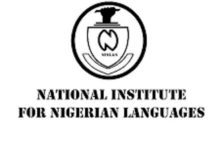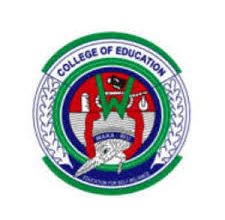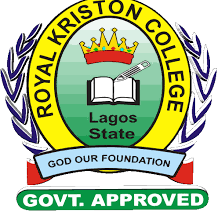Best Universities for a Finance Degree in Nigeria
A finance degree offers student a solid understanding of banking, trade, and economics. The study, acquisition, and management of money and assets are all aspects of finance. Activities in his area include banking, credit, debt, and capital markets, of which are governed by economic theories and norms.
It is a 4-year degrees programs which sometimes include mandatory company placements to ensure practical experience. The curriculum of a good Finance Bachelor usually includes modules such as: Accounting (especially IFRS rules) Financial reporting.
In today’s article we will be looking into the top best universities to obtain finance degrees in Nigeria.
Best Universities to Study Finance Degrees in Nigeria
Below are the best universities to study finance degree in Nigeria
University of Lagos
The University of Lagos should be at the top of your list if you want to study finance in Nigeria. Founded in 1962, it is one of the leading universities in West Africa and offers top-notch business and finance programs.
The University of Lagos offers undergraduate and postgraduate degrees in finance, accounting, and business administration that are recognized across Nigeria and beyond. Its Bachelor of Science in Finance is one of the most prestigious in the country. If you want to take your education to the next level, consider the Master of Science in Finance or the Master of Business Administration with a finance concentration.
At Unilag, you’ll learn from accomplished professors and lecturers with years of industry experience. The finance faculty have worked in major banks, financial institutions, and corporations across Nigeria and worldwide. They stay up-to-date with trends in financial markets, theories, and practices to provide you with a highly relevant education.
With its highly ranked degrees, experienced faculty, and networking opportunities, the University of Lagos deserves serious consideration if you want to study finance in Nigeria. You’ll gain knowledge and skills to prepare you for a successful career as a financial analyst, investment banker, portfolio manager, or other role.
Covenant University
Covenant University is one of the top private universities in Nigeria offering undergraduate and postgraduate programs in finance and accounting. Located in Ota, Ogun State, the university has a highly-ranked business school with experienced faculty and strong industry connections.
As a finance major at Covenant University, you’ll take foundational courses in economics, statistics, and accounting to build a solid base of knowledge. You can then choose from electives in areas like:
- Investment and portfolio management
- Financial institutions and markets
- International finance
Finance graduates from Covenant University are highly employable, with many top banks, auditing firms, and corporations actively recruiting on campus. An internship, offered during your third year of study, provides valuable on-the-job experience.
University of Nigeria, Nsukka
The University of Nigeria, Nsukka (UNN) is one of the top public universities in Nigeria and an excellent choice for a finance degree. Located in Enugu State, UNN has a highly ranked business school that offers undergraduate and postgraduate degrees in finance, accounting, and business administration.
The finance program at UNN provides a broad education in all areas of finance. Some of the courses you can expect to take include:
- Financial Management
- Investment and Portfolio Management
- International Finance
- Financial Institutions and Markets
- Public Finance
You’ll develop strong analytical and critical thinking skills that prepare you for a career as a financial analyst, investment banker, portfolio manager, or CFO.
UNN has an accomplished faculty of finance professors and lecturers. They emphasize interactive learning and real-world case studies. The business school also has excellent resources like a virtual trading room to give you hands-on experience.
As a public university, UNN has very affordable tuition compared to private universities. Both Nigerian and international students can take advantage of the lower costs. UNN also offers scholarships, grants, and student loans to help make a finance degree even more accessible.
Beyond the classroom, you’ll enjoy an active campus environment at UNN. There are over 30 student organizations to get involved in, including the Finance Students Association. UNN also has sports teams, clubs, and a student center where you can relax and socialize with friends.
Overall, the University of Nigeria, Nsukka provides a high-quality, affordable education in finance. Between the distinguished faculty, comprehensive curriculum, and vibrant student culture, you’ll gain the knowledge and experience needed for a successful career in the world of finance.
Ahmadu Bello University
Ahmadu Bello University (ABU) in Zaria, Kaduna State is ranked as one of the top universities in Nigeria for finance and business degrees. ABU offers undergraduate and postgraduate programs in Accounting, Banking and Finance, and Business Administration.
ABU’s business and finance programs are highly respected in Nigeria. The university is known for outstanding faculty with real-world experience, innovative curriculum, and opportunities for internships. Some of the courses offered include:
- Financial Management
- Cost and Management Accounting
- Auditing
- Taxation
- International Finance
- Entrepreneurial Finance
The Department of Accounting at ABU is the oldest accounting department in Northern Nigeria. It offers a B.Sc. Graduates of the accounting program often pursue careers as accountants, auditors, tax specialists, and financial analysts at major companies.
The Department of Finance at ABU offers a B.Sc. in Finance, as well as MBA and M.Sc. degrees in Finance. Coursework focuses on areas like corporate finance, investment analysis, financial markets, and risk management. Finance students can gain practical experience through internships at banks, brokerage firms, and other financial institutions.
With a long history of excellence, ABU is an ideal place to study finance and accounting in Nigeria. Robust degree programs, accomplished faculty, and opportunities for networking prepare students for successful careers. If you’re looking to advance your education in the field of finance or business, ABU deserves strong consideration.
Babcock University
Babcock University is a private Christian university situated at Ilishan-Remo, Ogun State, Nigeria. Founded in 1959 by the Seventh-day Adventist Church, Babcock has a reputation for academic excellence and currently enrolls over 10,000 students.
Babcock’s School of Business and Management Studies offers undergraduate and graduate degrees in business administration, accounting, banking and finance, and marketing. The finance degree program provides students with a broad understanding of financial concepts and tools to prepare them for careers as financial analysts, investment bankers, portfolio managers, and more.
Core finance courses at Babcock include:
- Financial Management
- Investment Analysis and Portfolio Management
- Financial Institutions and Markets
- International Finance
- Public Finance
- Entrepreneurial Finance
Students also take general business courses in areas like accounting, economics, statistics, and management. Babcock’s faith-based approach emphasizes ethical behavior and community service.
Internships and job opportunities abound in nearby Lagos, Nigeria’s economic hub. Babcock has partnerships with major Nigerian companies to provide students with practical work experience. The university also hosts regular career fairs and networking events to help students find jobs after graduation.
With its focus on faith, knowledge and service, Babcock University offers a supportive learning community and high-quality finance degree program. Graduates from Babcock are well prepared for leadership roles in Nigeria’s growing economy. If you’re looking for a reputable Nigerian university to study finance, Babcock deserves serious consideration.
READ ALSO: Best Universities to Study Banking and Finance in Nigeria
FAQ
Many prospective students considering communication programs in Nigeria likely have questions about the field of study and process. Here are some of the most frequently asked questions and their answers:
What degrees are offered?
Nigerian universities offer undergraduate and postgraduate degrees in finance, including:
- Bachelor of Science (BSc) in Finance
- Master of Science (MSc) in Finance
- Master of Business Administration (MBA) with a finance concentration
What can I do with a finance degree?
A finance degree opens up many career opportunities, such as:
- Financial analyst
- Investment banker
- Accountant
- Financial manager
- Stockbroker
With experience, you can advance to senior roles like Chief Financial Officer.
What skills will I learn?
A finance degree will equip you with practical skills like:
- Financial modeling and analysis
- Investment analysis
- Risk management
- Accounting
- Financial reporting
- Budgeting and forecasting
What are the entry requirements?
Entry requirements vary between universities but typically include:
- Senior Secondary School Certificate Examination (SSSCE) or equivalent with credits in English, Mathematics, Economics and Accounting
- Minimum cut-off points which range from 200 to 280 depending on the university and course
- Aptitude tests like UME for undergraduate degrees
- Work experience may be required for MBA and MSc programs










